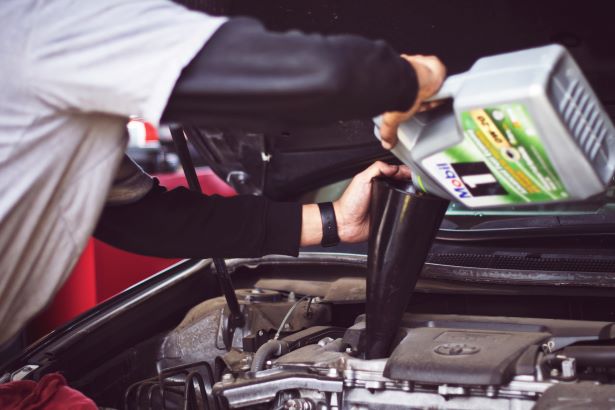
Facts And Myths About Car Oil
I am going to tell you something and then you can forget it immediately. Say your car uses SAE 5W-30 oil. What do those letters and number mean? SAE stands for the Society of Automotive Engineers. The W stands for winter, so the number before W represents the viscosity of the oil when cold. The last number, in this case, 30, is the viscosity at normal operating temperature. So your oil will be thin enough to allow your car to start normally, even on a cold morning, and it will have the optimal viscosity for fuel consumption and wear protection when the engine is warm.
But you don’t really need to know that. Check what oil your car’s manufacturer recommends and make sure that is what the attendant at the filling station puts in. People get quite worked up by the cost of this oil vs that oil, but unless you are using litres per month, it is a few bucks that go a long way and will save your much more than it costs. Use what they say.
How often should you check your oil?
This depends on a few things. How old is your car and/or what mileage does it have? If your car is still newish and you don’t see what I did in the next paragraph, check it a couple of times between services and before you go on a long trip. Maybe every second time you fill your windscreen wiper reservoir? As it gets older, check more regularly.
My car is quite new – around 40k km – but one day I noticed oil on the driveway. Not a lot, more a dark mist than a patch. I immediately checked the oil – fine – and took it to the dealer. A faulty gasket and problematic seal replaced under warranty and all is well. My car was not yet using oil, but if that seal had failed, it would have lost all oil at once and the engine would have seized up.
If you check your oil three months after a service and it needs a top-up, you should check it more often, and you should have the cause checked out. An engine using oil means something is wrong, and something wrong can suddenly go much more wrong. And you don’t want that. Be aware of your oil.
What about additives to make my oil work better?
Simple. If you use the recommended grade oil, don’t add additives. At best they will only cost your money and do nothing. At worse they could damage your engine.
Engine oil comes with a lot of additives added during manufacture. They lower the pour point when cold, slow oxidation when hot, remove gases, clean components, minimise wear and corrosion and protect components under high pressure. So your oil has all it needs, so someone trying to sell you more is looking at their own pocket and not your engine.
Oil is oil, so why pay more? Use the cheapest, all the same.
Nope. Car manufacturers work closely with oil companies to match optimum engine performance, fuel efficiency and longevity with the right oil. So use the oil they recommend. Unless you have a vintage 60-year old beauty or your bakkie has 600k on the clock. In these kinds of cases, you should speak to an expert on what specific oil your car needs.
If like me, you prefer clean, late model pre-owned cars with no-hidden hassles, have a look on Group1 Cars.

